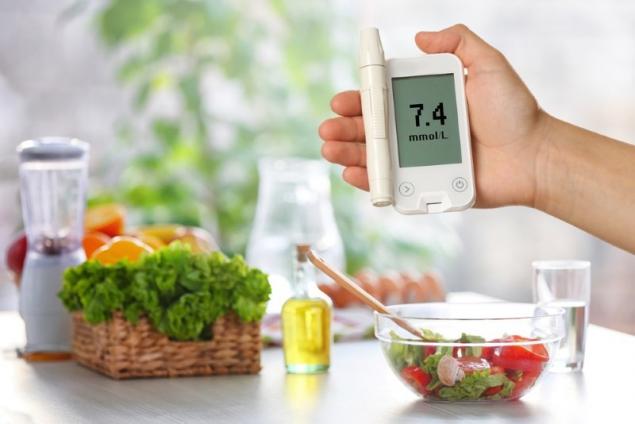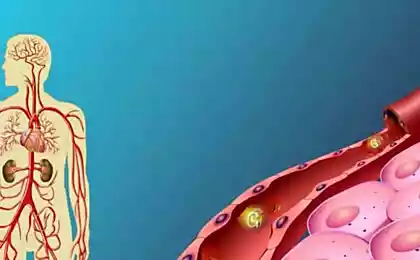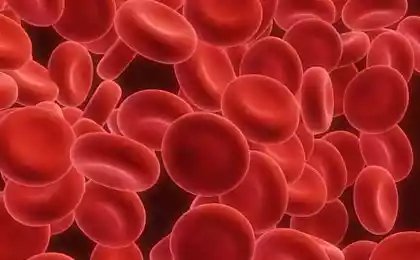195
Why You Should Eat Less Sugar
Diabetes is a chronic disease that affects many people. But not everyone knows about the real consequences of this disease, many experience stress, twisting themselves and thinking about the terrible consequences. Today we will dispel 10 myths associated with diabetes.

Consequences of diabetes Editorial "Site" I tried to figure it out. What are the consequences of diabetes mellitus It's actually true. Make sure you're not wrong about that.

To determine whether you have diabetes, and start treatment on time, you need to know the first signs of diabetes. And prevention will not harm anyone, blackberries prevent the appearance of diabetes and reduce its symptoms.
Tell your friends in social networks about the myths about diabetes.

Consequences of diabetes Editorial "Site" I tried to figure it out. What are the consequences of diabetes mellitus It's actually true. Make sure you're not wrong about that.

- Sugar is the cause of diabetes MythEverything is the fault of sugar, and all diabetics are sweet tooth.
Reality.Excessive amounts of sugar contribute to weight gain and indirectly affect the onset of the disease. There is no direct link between the disease and sugar consumption.
- The thin don't get diabetes. MythOnly obese people are at risk of getting diabetes. Skinny diabetes is safe.
Reality.Patients who are overweight 85%, but the remaining 15% are normal weight. Genetic predisposition and visceral fat surrounding internal organs are precursors of diabetes.
- Diabetics should not give birth MythWomen with diabetes should not give birth because it threatens the health of the newborn and themselves.
Reality.If pregnancy is planned and regularly visited by the attending physician, serious consequences can be avoided. For 3-4 months, a woman should take care of her health and lifestyle.
- Physical activity is prohibited MythSports and physical activity are contraindicated in diabetes.
Reality.Sport helps normalize blood glucose levels and helps fight diabetes. It is necessary that the doctor prescribe an acceptable load and duration of training. Before starting exercise and every 30 minutes of activity, it is recommended to measure blood sugar levels. In case you need to raise the sugar level, you need to have a snack.
- Sweets are forbidden MythWhen diagnosed, sweets are excluded. Only special products for diabetics are allowed.
Reality.Diabetics can eat regular foods like everyone else. They need to carefully monitor the diet: limit foods with fast carbohydrates, do not lean on sweet, jam, sweet soda. The menu for diabetes should be balanced, include foods with complex carbohydrates, vitamins, healthy fats.
- Blindness MythWith diabetes, vision deteriorates and as a result, the person becomes blind.
Reality.Diabetes affects all organs, and vision is no exception. If you adhere to proper nutrition, follow the doctor's prescription, refrain from alcohol and smoking, blindness will not come.
- Amputation of limbs MythGangrene and amputation in diabetes cannot be avoided.
Reality.This is one of the possible complications, but not necessary. You need to monitor the pressure and well-being, adhere to a healthy lifestyle. The risk of any complications decreases. The effects of high sugar in diabetes Depending on many factors, you do not need to scare yourself in vain, it is better to keep your sugar level under control.
- Honey can be eaten in any amount MythSugar and candy can not be eaten, and honey - you can at least buckets.
Reality.Honey is almost no different from caramel, it contains approximately the same amount of glucose as in other sweets. Do not rely on sugar substitutes.
- Insulin causes dependence MythInsulin is no different from drugs and is addictive. It should only be stabbed as a last resort.
Reality.: depending on the type of diabetes, treatment is prescribed: with type 1 the hormone is vital, with the 2nd - tablets are prescribed, but if they stop acting, insulin is prescribed.
- Diabetes is contagious MythDiabetes can cause a virus that infects people around you.
Reality.Diabetes can occur from the coincidence of different factors: heredity, obesity, lifestyle. It is impossible to become infected with a diabetic.
To determine whether you have diabetes, and start treatment on time, you need to know the first signs of diabetes. And prevention will not harm anyone, blackberries prevent the appearance of diabetes and reduce its symptoms.
Tell your friends in social networks about the myths about diabetes.

































